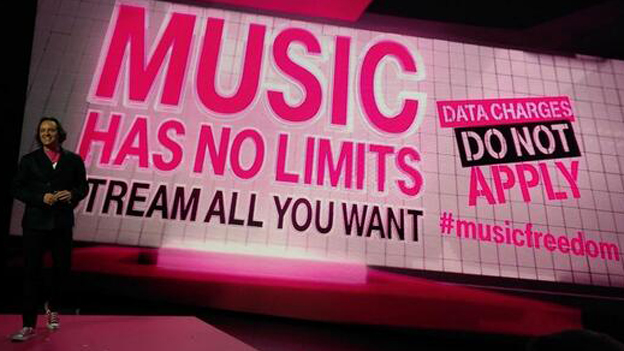T-Mobile wants you to stream as much as you want with Music Freedom

Sounding sick of constantly being asked when the next Un-carrier move is coming, T-Mobile CEO John Legere went ahead and announced Un-Carrier 6.0 right after unveiling Un-Carrier 5.0.
The latest addition to the T-Mo quiver is called Music Freedom. It's an initiative that lets Simple Choice customers listen to most music services with unlimited streaming on their mobile devices, and it's live right now.
This includes Pandora, Rhapsody, iHeartRadio, iTunes Radio, Slacker, Spotify, Milk Music and Beatport, all streaming with no data caps and at no extra cost. Users never have to worry about hitting 4G LTE data caps.
"No data caps apply because music should be free," said CMO Mike Sievert during the Seattle event unveiling Music Freedom.
We can handle it
Aside from letting customers listen to whatever music they want for as long as they want, T-Mobile sees Music Freedom as a chance to prove how strong its network is.
T-Mobile is letting customers voice what services they want added to the Music Freedom offering, promising more will be included down the road. Users can jump to a dedicated website or tweet with #musicfreedom to make their service suggestions.
As part of the announcement, T-Mobile also unveiled unRadio, a new music service built in partnership with Rhapsody.
Sign up for breaking news, reviews, opinion, top tech deals, and more.
If you were expecting another Un-carrier announcement sometime this year, give yourself a pat on the back. Un-carrier 7.0 is due sometime later this summer.
- Like the iPhone 5S? Then you may want to check out the iPhone 6

Michelle was previously a news editor at TechRadar, leading consumer tech news and reviews. Michelle is now a Content Strategist at Facebook. A versatile, highly effective content writer and skilled editor with a keen eye for detail, Michelle is a collaborative problem solver and covered everything from smartwatches and microprocessors to VR and self-driving cars.